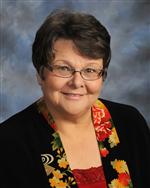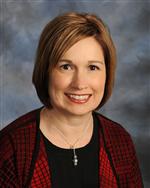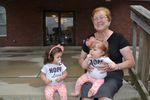Buncombe County Schools elections (2016)
← 2014 |
|---|
|
|
| Enrollment (13–14): |
|
|
Four of the seven seats on the Buncombe County Schools school board were up for general election on November 8, 2016. One seat was elected at large and the other three by district. Three newcomers filed for the open at-large seat: Matt Kern, Donna Pate, and Amy Wamsley. Pate won the at-large seat. North Buncombe District incumbent Ann Franklin filed for re-election unopposed and won another term on the board. Four newcomers vied for the open Owen District seat: Robert Chilmonik, Margaret (Peggy) Buchanan, Mark Siler, and Mark Crawford, with Buchanan emerging victorious. Finally, two filed for the Roberson District seat: incumbent Amy Churchill faced Laura Bowen. Churchill succeeded in defending her seat against Bowen. There was no primary.[1][2]
Elections
Voter and candidate information
The Buncombe County Schools school board consists of seven members elected to four-year terms. Six members are elected by geographic district and one member is elected at large. The candidate filing deadline for this election was August 5, 2016. There was no primary election and the general election was held on November 8, 2016. Four seats were on the ballot in 2016.
Candidates and results
At-Large
Results
| Buncombe County Schools, At-Large General Election, 4-year terms, 2016 |
||
|---|---|---|
| Candidate | Vote % | Votes |
| 39.99% | 35,331 | |
| Matt Kern | 31.19% | 27,554 |
| Amy Wamsley | 28.34% | 25,039 |
| Write-in votes | 0.48% | 422 |
| Total Votes (100) | 88,346 | |
| Source: North Carolina State Board of Elections, "Official General Election Results-Buncombe," accessed December 5, 2016 | ||
Candidates
| Matt Kern | Donna Pate |
Amy Wamsley | |||
|---|---|---|---|---|---|
North Buncombe
Results
| Buncombe County Schools, North Buncombe District General Election, 4-year term, 2016 |
||
|---|---|---|
| Candidate | Vote % | Votes |
| 98.61% | 72,731 | |
| Write-in votes | 1.39% | 1,028 |
| Total Votes (100) | 73,759 | |
| Source: North Carolina State Board of Elections, "Official General Election Results-Buncombe," accessed December 5, 2016 | ||
Candidates
| Ann Franklin | |
|---|---|
| |
Owen
Results
| Buncombe County Schools, Owen District General Election, 4-year term, 2016 |
||
|---|---|---|
| Candidate | Vote % | Votes |
| 52.71% | 44,806 | |
| Mark Crawford | 26.75% | 22,737 |
| Robert Chilmonik | 14.58% | 12,391 |
| Mark Siler | 5.60% | 4,757 |
| Write-in votes | 0.37% | 316 |
| Total Votes (100) | 85,007 | |
| Source: North Carolina State Board of Elections, "Official General Election Results-Buncombe," accessed December 5, 2016 | ||
Candidates
| Robert Chilmonik | Margaret (Peggy) Buchanan | ||
|---|---|---|---|
| Mark Siler | Mark Crawford | ||
Roberson
Results
| Buncombe County Schools, Roberson District General Election, 4-year term, 2016 |
||
|---|---|---|
| Candidate | Vote % | Votes |
| 57.26% | 44,668 | |
| Laura Bowen | 42.06% | 32,813 |
| Write-in votes | 0.68% | 530 |
| Total Votes (100) | 78,011 | |
| Source: North Carolina State Board of Elections, "Official General Election Results-Buncombe," accessed December 5, 2016 | ||
Candidates
| Amy Churchill |
Laura Bowen | ||
|---|---|---|---|
|
|||
Additional elections on the ballot
- See also: North Carolina elections, 2016
The following offices shared primary, general or both election dates with the school board elections in Buncombe County:
- President
- U.S. Senate
- Governor
- Lieutenant Governor
- Attorney General
- Secretary of State
- State Treasurer
- State Auditor
- State Superintendent of Schools
- Agriculture Commissioner
- Labor Commissioner
- Insurance Commissioner
- State Senate
- State House of Representatives
- North Carolina Court of Appeals
- Judicial District Court
- Buncombe Soil and Water Conservation District Supervisor
The North Carolina Connect NC Public Improvement Bond question was also on the March ballot statewide.
Key deadlines
The following dates were key deadlines for this North Carolina school board election:[3]
| Deadline | Event |
|---|---|
| March 7, 2016 | First quarter campaign finance deadline |
| July 12, 2016 | Second quarter campaign finance deadline |
| August 5, 2016 | Candidate filing deadline |
| October 31, 2016 | Third quarter campaign finance deadline |
| November 8, 2016 | General Election Day |
| January 11, 2017 | Fourth quarter campaign finance deadline |
Endorsements
Ann Franklin, Margaret (Peggy) Buchanan, and Amy Churchill were each endorsed by the Buncombe County Association of Educators and Asheville City Association of Educators.[4]
Campaign finance
Candidates in this election raised a total of $25,877.44 and spent a total of $23,839.85 as of November 1, 2016, according to the Buncombe County Board of Elections.[5][6]
School board candidates in North Carolina were required to file campaign finance reports to their county's board of elections unless the candidate:
(1) Did not receive more than one thousand dollars ($1,000) in contributions, and
(2) Did not receive more than one thousand dollars ($1,000) in loans, and
(3) Did not spend more than one thousand dollars ($1,000).[7]
The third quarter campaign finance deadline was October 31, 2016, and the fourth quarter deadline was January 11, 2017.[8]
Past elections
Information about earlier elections can be found by clicking [show] at the right. | ||||||||||||||||||||||||||||||||||||||||||||||||||||||||||||||||||||||||||||||||||||||||||||||||
|---|---|---|---|---|---|---|---|---|---|---|---|---|---|---|---|---|---|---|---|---|---|---|---|---|---|---|---|---|---|---|---|---|---|---|---|---|---|---|---|---|---|---|---|---|---|---|---|---|---|---|---|---|---|---|---|---|---|---|---|---|---|---|---|---|---|---|---|---|---|---|---|---|---|---|---|---|---|---|---|---|---|---|---|---|---|---|---|---|---|---|---|---|---|---|---|---|
2014
| ||||||||||||||||||||||||||||||||||||||||||||||||||||||||||||||||||||||||||||||||||||||||||||||||
What was at stake?
2016
Issues in the election
Q&A session with the candidates
Citizen-Times released a series of questions and answers they asked all the candidates for Buncombe County Schools. The following are the first two questions asked of the candidates, along with their responses. For a full list of the questions and answers, please click here.[9]
What do you see as the primary role of Buncombe County school board members?
At-Large
Matt Kern: To manage the superintendent, approve budgets and construction costs and be advocates for our teachers and students.
Donna Pate: I see the primary role of Buncombe County school board members as that of visionaries, advocates and collaborators. As visionaries, we look to the future — one, three, five, and 10 years from now — to determine where we want our school system to be, then implement a systemic plan to help us achieve our vision. As advocates, we constantly remain focused on the success of all students, working to insure this by whatever means we deem necessary and appropriate. Finally, as collaborators, we lend our personal skills and talents to our “team” as we work to achieve common goals.
Amy Wamsley: The Board of Education is the governing body of Buncombe County Schools. The board oversees the superintendent of schools, the budget of Buncombe County Schools and the mission of the schools. As a member of the board I will work with the community crafting a mission that represents the shared ideals of our community in educating our children.
North Buncombe
Ann Franklin: My primary role and goals are similar. I work to pass and support policies for the school system, hire the superintendent, oversee the spending of taxpayer monies and work to assure equitable facilities and instruction.
Owen
Margaret (Peggy) Buchanan: I see the main roles of the school board as twofold: First, support of the school administration and teachers. Second, advocacy for better funding in salaries, supplements and supplies. North Carolina is 42nd nationally in teacher pay and 43rd in per pupil spending.
Robert Chilmonik: Children first. School board members are the education leaders for Buncombe County public schools
Advocate for children
Develop board policy
Monitoring academic progress
Hiring and supervising the superintendent
Oversee compliance with state and federal mandates
Insure school safety
Oversee the budget
Engage in community outreach, including public speaking
Oversee school construction
Take part in long-term strategic planning
Lobby the state legislators for sensible programs and funding
Mark Crawford: I see more than one primary role for Buncombe County School Board members. I believe those roles include: a) providing the specific vision, goals and objectives for the entire Buncombe County School System; b) providing governance over the system; c) serving as advocates for our teachers, staff and administrators; d) serving as liaisons to every community served by our schools and advocates for our schools to every level of government which supports and funds our schools; and, e) establishing and upholding the professional standards and providing oversight of the administration of the Buncombe County School System as a whole.
Roberson
Laura Bowen: I view the primary role of a school board member as one who manages the funds and school properties of the county with due diligence in addition to providing all the material, training, logistical, and leadership support that teachers need in order to facilitate effective teaching. Teaching is one of the most important careers in our society because teachers are educating students for their future and the future of our country. Teaching is an honorable profession that affects not only the students, but also the viability of our country.
Amy Churchill: School board members are the front line advocates for students, staff, and the school system as a whole. The board, working together, collaborates with administration to set the goals and direction for Buncombe County Schools, establishing effective and efficient ways to achieve those goals, while also providing accountability to the community. Collectively, board members are responsible for oversight of the school system’s budget and policies, and have a quasi-judicial function when disputes come before the board. We also directly hire the superintendent, and provide general oversight of other system hiring as well.
What are your priorities if elected to school board?
At-Large
Kern: Help find funding for more mental health services, form partnerships with our business community to help fund classroom supplies and strongly support the expansion of affordable teacher housing and would love to see the long-range planning for this teacher housing initiative for all the districts. I also plan to use my construction knowledge to make sure we are getting the most for our tax dollars from the tens of millions of dollars slated for school construction and improvements.
Pate: The Buncombe County school system continues to distinguish itself as one of the most progressive, student-focused systems in North Carolina. I look forward to the possible opportunity to help guide our system to accomplish even higher goals. If elected to the school board, my priorities will include: continuing to create and implement innovative programs, especially in the areas of career and technical education at both the middle and high school levels; increasing our student services staff at all levels in order to address the increased mental health needs of our students; and recruiting and retaining high quality teachers, counselors and administrators.
Wamsley: What are your priorities if elected to school board?
A: Attract and retain qualified educators
Equip our classrooms for quality instruction
Review required test and assessments
Increase global learning opportunities
Create business and community partnerships
North Buncombe
Question was ommitted for Franklin.
Owen
Buchanan: I have three priorities if elected to the school board:
Increase funding for supplies, salaries and supplements. North Carolina is currently spending $855 per student less than in 2008.
Analyze the current A-F grading system for schools. This system should be adjusted to increase the growth component (currently only 20 percent of the overall grade). The growth score reflects the improvements on the school achievement scores from one year to the next.
Focus on quality and accountability on charter schools. Accountability should take into consideration student demographic and percentage of at-risk students served.
Chilmonik: Improve employee working conditions including consistent salary increases for teachers and support staff.
Sound fiscal management and accountability that directs money to the classroom and reduces unnecessary spending.
Insure that all students understand and speak the English language by funding reading tutoring programs starting in the early grades. Offer parents English language classes.
Safe schools that includes transportation and anti-drug programs.
Offer the latest job skills by implementing comprehensive high schools. These selected high schools will offer public service, manufacturing, solar/wind technology, building and construction Industry training.
Develop and present to lawmakers a board-generated yearly legislative priorities list that targets budget shortfalls and offers solutions.
Crawford: If given the opportunity of being elected to the Buncombe County School Board, I have both short-term and long-term priorities. In the short-term (first year or so) my very first priority is to visit every single school in the system with the intention of listening to any teachers, staff, administrators, students and parents who choose to share with me. From this, I hope to address shortcomings, problems and any issues which hinder achieving the greatest classroom success. My long-term priority is to ensure the very best education possible for every single student in our school system.
Roberson
Bowen: Teachers need and deserve to receive higher pay in order to be competitive against private industry. Also, more teacher’s aides in the school system would allow the classroom teachers more time to focus on teaching rather than behavioral issues. The current county STEM program is an exciting start, but at the moment the school has room for only 100 students whereas 240 applied. Going forward, I want to expand the STEM program into as many of the high schools as our tight budget will allow. Also, expand vocational counseling and opportunities for those headed directly to the work-force.
Churchill: There are four priorities I would like to continue as the Roberson district representative:
Communicate clearly, accurately and often with parents and community members.
Collaborate with local businesses, industry and institutions of higher education to expand and enhance opportunities for students, particularly in fields related to Science/Technology/Engineering/Arts/Math (STEAM)
Pay our teachers and other employees fairly, and make sure they have the resources they need to do their jobs.
Ensure that taxpayer dollars are spent as effectively and efficiently as possible.
Issues in the district
Transgender bathroom law
North Carolina passed the Public Facilities Privacy & Security Act (HB2) stating that individuals in government-operated facilities must use the bathroom that corresponds with the gender stated on their birth certificate on March 23, 2016. The law was passed by the legislature in a one-day specially-called session, and was signed into law that night by Governor Pat McCrory (R). The bill reversed an earlier ruling that allowed transgender individuals to use the restroom of their preference, and it offset local ordinances in the state that let transgender citizens do so.[10]
HB2's effect on NC school districts
Since HB2 was signed into law, many school districts in the state have struggled to formulate a response. Not only does Title IX prohibit discrimination on the basis of sex, but the state law's validity is being disputed in court. North Carolina school districts are unsure of how to balance these two laws. In the Wake County Public School System, Wake County sheriff Donnie Harrison said he would consider pulling deputies out of schools if the district does not decide on a consistent transgender bathroom policy. Harrison said the district did not have a uniform policy on the use of bathrooms by transgender students, which was causing confusion and unease among parents.[11][12]
According to Lisa Luten, a Wake County Public School System spokesperson, transgender student issues with bathrooms and locker rooms are handled on a case-by-case basis. "No child has ever been at risk based on how we have handled this issue,” Luten said. “Because this issue is still being debated in federal courts, the school system is unable to create a formal policy.”[11] The district's superintendent James Merrill said that transgender bathroom questions ought to be addressed by administrators rather than student resource officers. According to Nathan Smith, the director of public policy for the Gay, Lesbian & Straight Education Network, the consequence is that many schools decide their transgender bathroom policies on a case-by-case basis, leading to conflicting messages.[11][13]
Lawsuits filed
On May 9, 2016, Gov. McCrory and the Justice Department filed opposing lawsuits, the former in support of the law and the latter against it. On one side, the U.S. Department of Justice's civil rights office said that the law is discriminatory and infringes on civil rights. “This action is about a great deal more than just bathrooms,” said Attorney General Loretta Lynch. “This is about the dignity and respect we accord our fellow citizens and the laws that we, as a people and as a country, have enacted to protect them.” Gov. McCrory's lawsuit was against the Justice Department, charging the federal government with “baseless and blatant overreach.” McCrory defended the necessity of the law as a response to a nondiscrimination ordinance in Charlotte.[14]
The ACLU and the Justice Department asked a judge to hold off on HB2 while the lawsuit is being decided. According to federal documents, the trial could take place as early as October or November 2016. The Charlotte Observer stated that it would "not be unreasonable to expect Schroeder's ruling by the summer of 2017, perhaps before."[10]
Backlash
On July 21, 2016, the NBA announced it planned to move its All-Star Game from Charlotte, North Carolina, which was scheduled to be held there in 2017. According to the Charlotte Observer, this decision will cost the city approximately $100 million. On September 12, 2016, the NCAA ousted seven championships that were scheduled to be held in the state during the 2016-2017 school year. Two days later, the Atlantic Coast Conference made a similar decision, revealing it planned to move the men's football championship game scheduled for December 2016 from Charlotte.

Want to see how this election related to state and national trends on this topic? Ballotpedia tracked this issue in the 2016 election cycle so you can see the connections and impact on this race in context.
About the district
- See also: Buncombe County Schools, North Carolina
Buncombe County Schools is located in Buncombe County, North Carolina. The county seat is Asheville. Buncombe County was home to 253,178 residents between 2010 and 2015, according to the United States Census Bureau.[15] The district was the 11th-largest school district in the state in the 2013–2014 school year and served 25,495 students.[16]
Demographics
Buncombe County outperformed North Carolina as a whole in terms of higher education achievement from 2010 to 2014. The United States Census Bureau found that 35.1 percent of county residents aged 25 years and older had attained a bachelor's degree, compared to 27.8 percent for the state. The median household income in the county was $45,642, compared to $46,693 for the state. The county's poverty rate was 13.9 percent, compared to 17.2 percent for the entire state.[15]
|
| |||||||||||||||||||||||||||||||||||||||||||||
Note: Percentages for race and ethnicity may add up to more than 100 percent because respondents may report more than one race and the Hispanic/Latino ethnicity may be selected in conjunction with any race. Read more about race and ethnicity in the census here.
Recent news
The link below is to the most recent stories in a Google news search for the terms 'Buncombe County Schools' 'North Carolina'. These results are automatically generated from Google. Ballotpedia does not curate or endorse these articles.
See also
| Buncombe County Schools | North Carolina | School Boards |
|---|---|---|
External links
Footnotes
- ↑ Buncombe County, "November 2016 Candidate List," accessed August 8, 2016
- ↑ North Carolina State Board of Elections, "Unofficial General Election Results-Buncombe," accessed November 8, 2016
- ↑ North Carolina State Board of Elections, "Reporting Schedules," accessed November 1, 2016
- ↑ Elisabeth Moore, "Email conversation with SilMnz," October 17, 2016
- ↑ Buncombe County, "Campaign Finance Reports," accessed November 1, 2016
- ↑ Elisabeth Moore, "Email conversation with Victoria Leyva," November 1, 2016
- ↑ General Assembly of North Carolina, "Chapter 163: Elections And Election Laws, Article 22A - Regulating Contributions and Expenditures in Political Campaigns," accessed February 11, 2016
- ↑ North Carolina State Board of Elections, "Reporting Schedules," accessed October 11, 2016
- ↑ Citizen-Times, "Q&A with Buncombe school board candidates," October 6, 2016
- ↑ 10.0 10.1 Charlotte Observer, "Understanding HB2: North Carolina’s newest law solidifies state’s role in defining discrimination," March 26, 2016
- ↑ 11.0 11.1 11.2 Daily Tarheel, "Wake County sheriff calls for consistent transgender bathroom policy," September 29, 2016
- ↑ CBS North Carolina, "Wake sheriff threatens to pull deputies over transgender bathroom policy," September 27, 2016
- ↑ The News & Observer, "Four things to remember about House Bill 2," September 13, 2016
- ↑ Washington Post, "North Carolina, Justice Dept. file dueling lawsuits over transgender rights," May 9, 2016
- ↑ 15.0 15.1 15.2 United States Census Bureau, "Buncombe County, North Carolina," accessed July 18, 2016
- ↑ National Center for Education Statistics, "ELSI Table Generator," accessed November 16, 2015
- ↑ North Carolina State Board of Elections, "NC Voter Statistics Results," accessed August 8, 2014
| 2016 Buncombe County Schools Elections | |
| Election date: | November 8, 2016 |
| Candidates: | At-Large: Matt Kern • Donna Pate • Amy Wamsley North Buncombe: Incumbent, Ann Franklin Owen: Robert Chilmonik • Margaret (Peggy) Buchanan • Mark Siler • Mark Crawford |
| Important information: | What was at stake? • Additional elections on the ballot • Key deadlines |



















